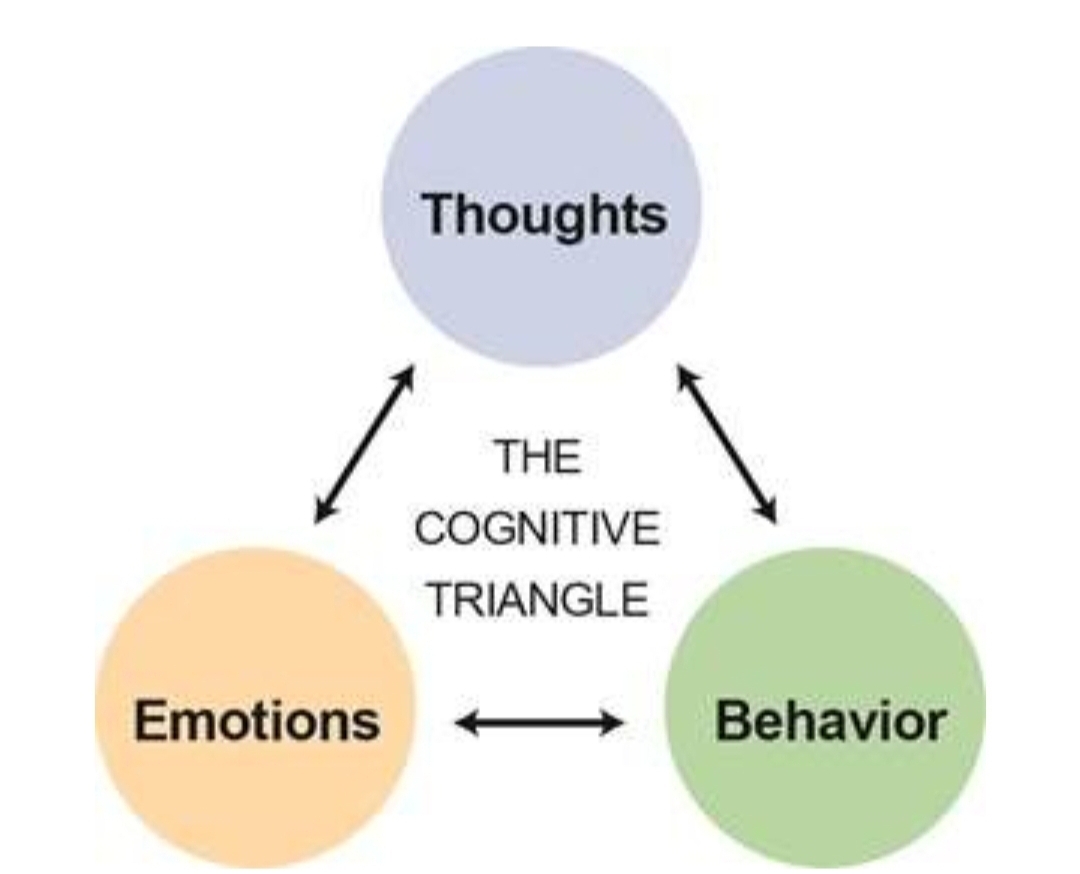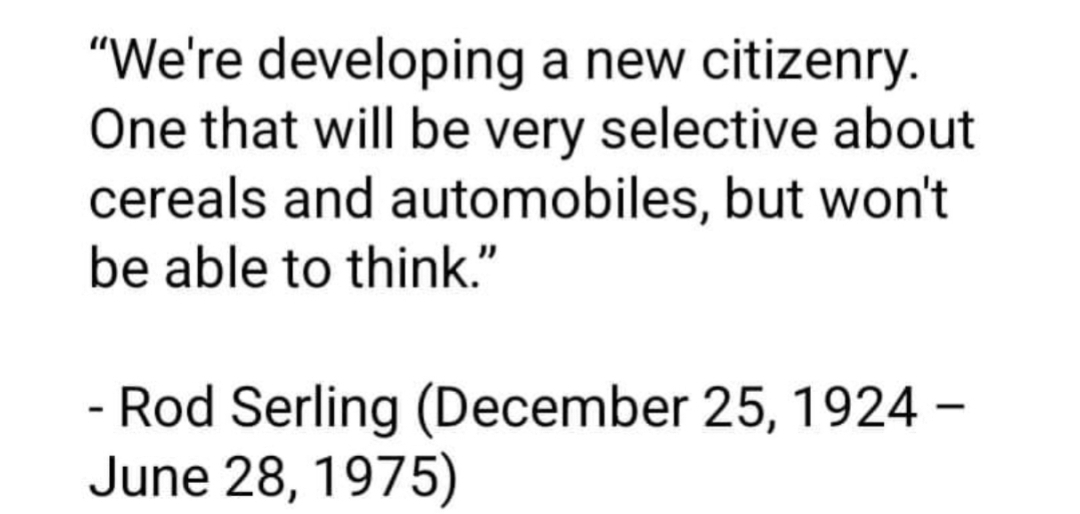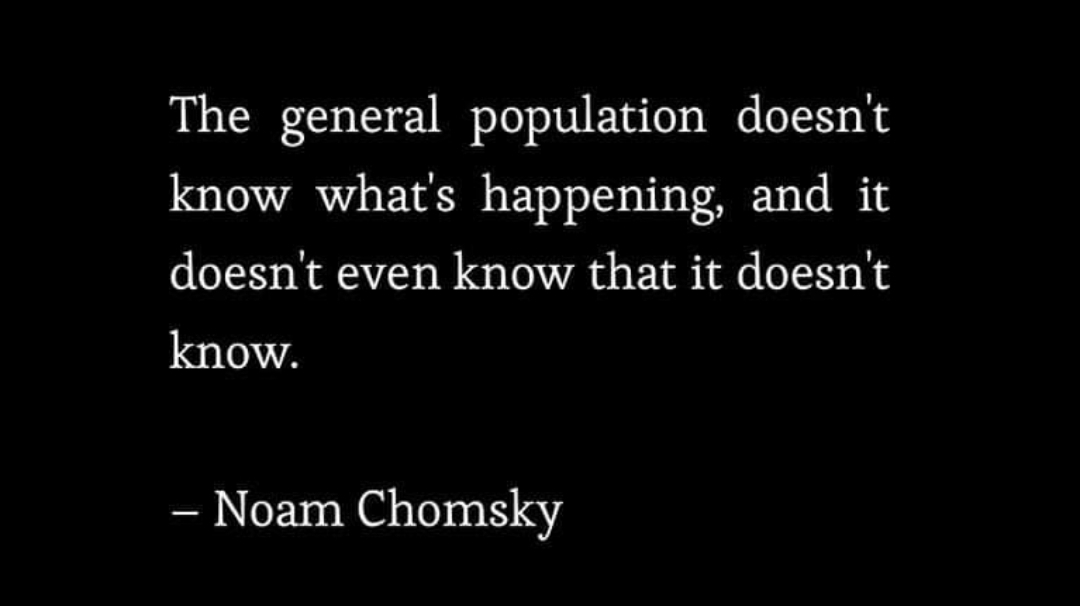In modern America, I see many dissatisfied and unhappy people. In this article, we want to point out two reasons why Americans are in this unhappy state of mind.
When our thoughts are unhappy, negative, and dissatisfied, these ideas will bleed over into our emotions and create our behavior.
The cognitive triangle will build collusion with one another, which will generate negative habits as our unhappiness and trust get worse over time. We will wrongly blame our relationships instead of tracking down the source of these thoughts.

As the article progresses, we hope and challenge the reader to take the time to reflect on their own life and those who they care about.
We’ve Developed A New Citizenry & Most People Are Unaware They’re It

America indeed faces a complex set of challenges involving both psychological operations (psyops) and organized dissatisfaction in consumerism.
These two factors can have significant and interrelated impacts on society, politics, and the economy.
Psychological Operations (Psyops)
Definition and Purpose:
- Psyops: Psychological operations are strategic efforts to influence the perceptions, emotions, and behaviors of individuals or groups to achieve specific objectives.
- Purpose: They are often used in military and political contexts to weaken adversaries, influence public opinion, and control narratives.
Effects on Society:
- Manipulation of Public Perception:
- Disinformation and Propaganda: The spread of false information and propaganda can distort public understanding of events and issues.
- Polarization: Psyops can exacerbate social and political divisions by exploiting existing tensions and amplifying conflicts in the class and culture warfare.
- Erosion of Trust:
- Distrust in Institutions: Continuous exposure to manipulated information can lead to a general distrust in governmental institutions, media, and other authoritative sources.
- Social Cohesion: The breakdown of trust can weaken social cohesion, making it difficult to achieve consensus on important issues.
- Behavioral Influence:
- Voting and Political Participation: Psyops can influence voting behavior and political participation, potentially undermining democratic processes.
- Public Health: In contexts like the COVID-19 pandemic, psyops can affect public health behaviors and credibility of institutions and governments.

Organized Dissatisfaction in Consumerism
Definition and Mechanism:
- Consumerism: The cultural orientation that encourages the acquisition of goods and services in ever-increasing amounts.
- Organized Dissatisfaction: Marketing strategies designed to create a sense of dissatisfaction with current products, prompting consumers to purchase new ones.
Effects on Society:
- Economic Impact:
- Economic Growth: Organized dissatisfaction can drive economic growth by stimulating consumer spending and encouraging innovation.
- Resource Depletion: However, it can also lead to unhealthy and unstable consumption patterns and environmental degradation.
- Psychological Impact:
- Perpetual Discontent: Constant exposure to marketing that highlights deficiencies can lead to a perpetual sense of discontent and inadequacy among consumers.
- Mental Health: This dissatisfaction can contribute to stress, anxiety, and other mental health issues.
- Social Impact:
- Materialism: Focusing on material wealth can overshadow other values, such as community, relationships, and personal fulfillment.
- Inequality: Consumerism can exacerbate social inequalities, as those with fewer resources may feel excluded or inferior.
Interplay Between Psyops and Consumerism
Synergistic Effects:
- Amplified Manipulation: Psyops and organized dissatisfaction can work together to amplify their effects. For example, disinformation campaigns can exploit consumer dissatisfaction to promote certain products or political agendas.
- Consumer Behavior: Manipulated perceptions can drive consumer behavior in ways that benefit certain economic or political interests.
Challenges and Consequences:
- Informed Decision-Making: The combination of psyops and consumerism can make it difficult for individuals to make informed decisions, whether in the marketplace or the voting booth.
- Democratic-Republic Health: The erosion of trust and social cohesion can undermine the health of democratic-republic institutions and processes.
Addressing the Challenges
- Media Literacy:
- Education: Promoting media literacy can help individuals critically evaluate the information they encounter and reduce the impact of psyops and manipulative marketing.
- Awareness: Increasing public awareness about the tactics used in psyops and consumerism can empower people to recognize and resist manipulation.
- Regulation and Oversight:
- Policy Measures: Implementing policies to regulate disinformation and unethical marketing practices can help mitigate their negative effects.
- Transparency: Encouraging transparency in both media and advertising can build trust and promote informed decision-making.
- Community Engagement:
- Building Trust: Strengthening community bonds and fostering dialogue can rebuild trust and social cohesion.
- Collective Action: Encouraging collective action on issues like transparency and mental health can counteract the negative impacts of organized dissatisfaction and psyops.
The double whammy of psyops and organized dissatisfaction in consumerism presents significant challenges for American society. These forces can distort perceptions, erode trust, and drive unsustainable behaviors that undermine and hollow out humanity to produce shallow, selfish, and an unhappy society.
Addressing these challenges requires a multifaceted approach that includes promoting media literacy, implementing regulatory measures, and fostering community engagement. It also requires individuals to work on themselves emotionally, mentally, physically, and spiritually in order to overcome this insane and self absorbed society.
By taking these steps, society can better navigate the complex landscape of modern information and consumer environments, protecting both democratic-republic processes and individual well-being.







